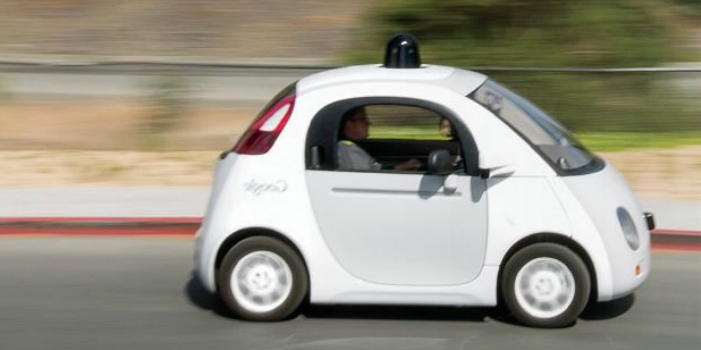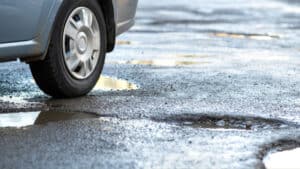
This week’s article is the second in my series on current and proposed regulation for autonomous and robot vehicles (AV). As I outlined last week, several agencies are moving forward with regulations — or in the case of the Federal Government, guidelines — designed to deal with this emerging technology, which is moving faster than the ability to regulate it. Let’s look at why this is so dangerous.
While California is instituting laws and regulations which will control the AV manufacturers, the Federal Government’s recently released guidelines rely on self-regulation, self-report and self-policing: a dangerous combination promoting self-interest. Where some agencies have a “trust and verify” policy, it seems the DOT just has a “trust” policy, which in the past has led to companies cutting corners, hiding data and consumer death.
California’s regulations, codified in the California Vehicle Code, lean towards promoting manufacturers and software developers, but still have some consumer protections. Manufacturers and developers, spearheaded by a heavily-funded Silicon Valley lobbying association, TechNet, which includes Google, Uber, GM, Amazon, AT&T, Lyft, Cisco, Oracle, AirBnB, HP and Dell. They can channel tens of millions of dollars into state and federal elections. With billions of dollars at stake, they are already throwing their considerable financial muscle around.
On the consumer side there are fewer, less well-funded but more dedicated volunteer consumer advocacy groups like the Consumer Attorneys of California (CAOC), the statewide association of trial lawyers where I served as president, and the national trial lawyers’ association, the American Association of Justice, (AAJ), where I serve on the board, are constantly seeking to prevent anti-consumer and anti-safety regulations and legislation. While trial lawyers are often badmouthed as being litigious and seeking to line their own pockets, in truth, most of our legislative and policy work is designed at preventing death and injury. Currently CAOC is fighting for consumer safety with the California DMV, which is seeking to revise its regulations to “adapt” to the industry’s desire to remove occupant controls and reduce or eliminate systems which would provide data in the event of a collision and eliminate manufacture liability.
For example, the DMV is recommending an amendment of California Vehicle Code Section 228.28 to state that a manufacturer or software developer cannot be held responsible when the vehicle has not “been maintained in compliance with manufacturer’s specifications and any modifications to the vehicle that affect the operation of the vehicle’s autonomous technology. . .” The CAOC, while arguing that the DMV is not the proper body to fundamentally alter current law — the legislature is — argues that “All potentially responsible parties have a duty to use due care and reasonable diligence to avoid an accident or injury, and to maintain the vehicle under reasonable control.”
The proposed language immunizes manufacturers even if they knowingly allow an AV to be operated in a dangerous state. Essentially, this will allow manufacturers to raise a “failure to maintain” defense against the AV operator or owner in every case where the AV technology fails regardless of fault. AV manufacturers have the ability to know, remotely, when the vehicle may have been modified and as such, the ability to shut it down to protect the safety of not only the driver, but also the public traveling on the road and/or sidewalk. Manufacturers should stand behind their technology and build it such that an unsafe vehicle cannot be operated.
Proposed amendment to Cal. Vehicle Code Section 228.06(a)(8)(A) and (B) will require that the registered owner of the vehicle take responsibility for ensuring the latest manufacture updates are installed in the vehicle. If this regulation goes into effect the manufacturer would be able to offer, as a complete defense, the failure of a consumer to know about, and upload, a software upgrade. Likewise, should the manufacturer require an expensive upgrade, that they would profit from, and the consumer could not afford, then the consumer would be without remedy for the software malfunction. As we know from our smartphones, upgrades are not always improvements. Imagine if you failed to upload the most recent OS — flaws and all — and your phone caught on fire, leaving you without recourse. Now imagine that was your vehicle.
CAOC is fighting for consumer safety. This shows you that trial lawyers are not interested in suing but, more importantly, in preventing injury and unfairness through standing up to the corporations which seek to profit without accountability. Next week I will continue to expose the current efforts to reduce safety standards by AV manufacturers.
Contact An Uber Accident Lawyer At The Dolan Law Firm
If you were injured in an Uber accident or Lyft crash in San Francisco, Oakland, San Jose, Los Angeles, San Diego or elsewhere in California and whether or not the rideshare driver was at fault, an Uber accident attorney at our firm can assist you in obtaining the full compensation you are entitled to under the law. Please call us today at 415-636-8160 or complete our online contact form.










